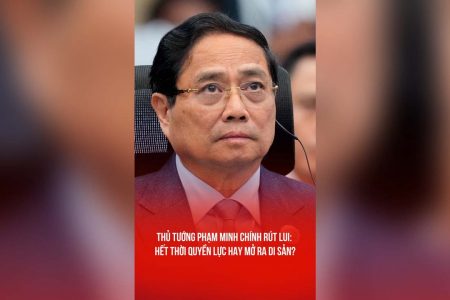
Investing in education will bring long-term benefits in all aspects, in all fields, to all countries. The current general trend, towards free education, in the world as well as the Asean region, is relatively popular.
For example, in the Kingdom of Thailand, since 2000, the state has provided free education for all students for 12 years of study (including vocational training). At the same time, the state pays for all expenses: books, school bags, uniforms (3 different types). Parents of students in Thailand do not have to pay any fees, except for gifts for their children. Even the students‘ lunches are taken care of by the state.
What is just mentioned is still the dream of parents and students in Vietnam. Because the cost of education for children is always a burden, with countless unreasonable surcharges. But if parents don’t pay, then they and their children won’t have peace of mind.
Vietnamese state media reported that by September 2023, there will be 4 localities across the country with 100% tuition exemption for students in the 2023-2024 school year. Those are, Hai Phong, Da Nang , Ba Ria – Vung Tau and Ha Nam, with annual costs of up to hundreds of billions of VND.
In addition, in the 2022-2023 school year, a number of provinces and cities nationwide announced tuition exemptions and reductions for students, including: Quang Binh, Can Tho, Quang Ninh, and Bac Kan.
Most recently, according to the Education newspaper on December 8, „Ho Chi Minh City: Middle school students will be exempted from tuition.“
Accordingly:
„The People’s Council of Ho Chi Minh City has passed a resolution on tuition policy for students, which will waive tuition for junior high school students.“ Public opinion says that, although Ho Chi Minh City has only waived tuition for middle school students, it is still a remarkable achievement.
According to experience from developed countries, education is the foundation and important factor for national development. The success of many countries around the world has shown that if the state values and invests appropriately in education, it will bring great results in the long run, and investing in education is a wise investment. for sustainable development.
The Communist Party of Vietnam and its government always affirm that Vietnam steadfastly follows the path of socialism, on the foundation of communism. One of the typical advantages of socialism is the guarantee of free education and healthcare.
Countries that have pursued communism in the past and present, such as Cuba and North Korea, to this day, although they are poor countries, the governments of those authoritarian countries continue to maintain the policy of „free education and medical treatment for all people.“
On the contrary, in Vietnam, the two fields of education and health are neglected and not cared for by the Party and state. More dangerously, the government also uses the tactic of „socialization“ to reduce the budget for education and health care, which is already too small, to spend excessively on the police and military.
According to the Ministry of Finance’s budget expenditure estimates for the last three consecutive years, the budget spent on the Ministry of Public Security has always been the second highest, just behind the Ministry of National Defense, and with a cost more than ten times higher than the Ministry of Education and also the Ministry of of Health.
Specifically, in 2022, the Ministry of Public Security will be allocated an amount of VND95.5 trillion, which increases to about VND100 trillion in 2023. Meanwhile, in 2022, the budget spent on Education is only VND6.521 trillion, and in 2023 it is VND6.526 trillion.
Thus, the state budget expenditure on the police sector is about 13 times higher than the budget expenditure on education, and the same is true for the health sector. That shows the unreasonable policy of the Vietnamese government, which gives excessive priority to the safety of the Party and the regime.
According to experts, investing in education will bring long-term benefits in all fields and in Vietnam’s development. That will provide the country with a young workforce in the future, full of ethics, knowledge, as well as life skills, to contribute to building the country.
Obviously, the biggest concern of the Communist Party of Vietnam today is to maintain political security, to maintain their unique position in leadership and management of state and society, absolutely not from the interests of the people.
If the head of the Communist Party of Vietnam – General Secretary Nguyen Phu Trong – every time he opens his mouth, he shouts about advancing to socialism. The government claims that it is „a government of the people, by the people and for the people.“
Public opinion asks the question: The Party and the state continue to act in the name of socialism, but why in Vietnam education and health are not free like North Korea and Cuba, General Secretary?
Thoibao.de (Translated)


























